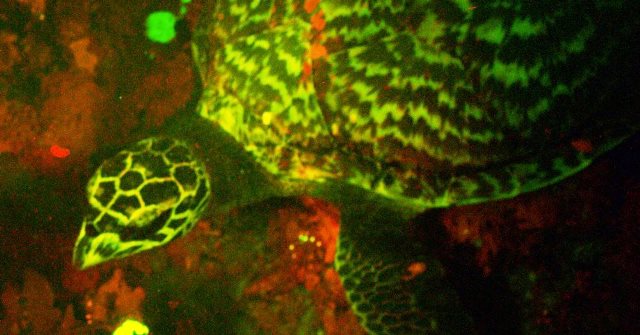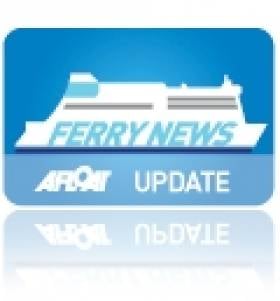Displaying items by tag: WiFi
UK Marina Network Spends £250,000 on New WiFi Service
MDL Marinas, one of Europe’s largest leading marina operators has invested £250,000 in a new, super fast WiFi service across its network of UK marinas.
The new hardware will offer super quick internet access across all of MDL Marinas’ 19 UK marina and boatyard sites. It will enable berth holders and visitors to quickly and easily connect, stream video, Skype and handle large file downloads, and all from the comfort and convenience of their own boats.
The complimentary service is offered as part of MDL’s Freedom Berthing membership and will be accessible for all WiFi enabled mobile devices, offering a high-speed, low latency connection.
Commenting on the new offering, Adrien Burnand, Head of Marketing at MDL Marinas said: “We know from talking to our berth holders and visitors how important it is for them to have access to super fast WiFi. Whether for business or pleasure, in this day and age most of us demand and expect excellent internet access wherever we may be. We are delighted to introduce this as part of the exceptional MDL service we provide across our marinas.”
Alan Chorlton, a berth holder at MDL’s Torquay Marina added: “I am delighted that MDL Marinas has upgraded its WiFi service. When I am berthed in the marina, it’s important for me to be able to access the internet to pick up emails, connect with friends and family via Skype, as well as view and download large files. The new WiFi is exceptionally fast; it’s brilliant.”
“The Slower You Travel, The More You See….”
It is a point which I feel compelled to make, time and again, because it is people who make up a community of interest, by their determination, their commitment, their focus and that is what I believe the marine community to be and so, consider it to be THE FAMILY OF THE SEA, a common interest which those of us who value the sea, the lakes and the rivers of Ireland share. Long may there be such people.
I am fortunate enough to come across them, to hear their stories and to be able, through this medium, to bring them to the attention of others. This week on the programme, a 22-year-old is the focus. There are people who decide to do amazing things, for no motivation other than that they want to achieve something and to help a particular project. Twenty-two-year-old Alex Ellis-Roswell is one such person. He comes from Margate in Kent in England from where he started walking around the coast of Britain and Ireland in August of last year, planning to take two years to complete his self-imposed task and raise money for the RNLI lifeboat service as he walked.
”The slower you travel, the more you see…” is his attitude … But can you imagine getting into a sleeping back somewhere at six o’clock on a Winter’s evening to spend the night outdoors? That was one of the things he describes on the programme as he outlines how he chose the pathways for his journey. But he also records the most horrible sight which he has seen and this is something to which I have referred before – human abuse of our beaches, our foreshore areas.
Alex has had to take a rest from his walk for a while, to recover from damage to his knees during his expedition, but he plans to resume shortly. He is a fascinating, determined young man on a mission, who set himself a target of raising stg£10,000, which he is set to exceed, such has been the level of popular support he has been receiving.
For more information about his journey go here
WI-FI ON DUBLIN BAY
Also on the programme you can hear about the introduction of Wi-Fi on Dublin Bay and the Dublin Bay Digital Diamond, which Deirdre Lane, Navigation Policy Officer with the Commissioners of Irish Lights, describes. Click the link at the top of this story to listen in.
SOMETHING UNUSUAL
There is always something unusual to be found in the sea and we come across such stories and incidents regularly when compiling THIS ISLAND NATION. This week we report that Live Science website has issued pictures of a rare and endangered sea turtle which was found near the Solomon Islands.

It was spotted underwater by divers at night time, glowing bright red and green and they filmed it – identifying it as a hawksbill sea turtle. "It was a short encounter," said David Gruber, an Associate Professor of Biology at Baruch College in New York City and a National Geographic explorer. “It bumped into us and I stayed with it for a few minutes. It was really calm and let me film it. Then it dived down the side of a cliff face wall."
GOING FOR A PINT IN A BATHTUB
There is a lot of tide in the Shannon Estuary, which can make it a dangerous place in certain conditions, so it is hard to imagine that anyone would try to use what seemed liked nothing bigger than a bathtub to set out on the river to go for a few pints. Not surprisingly those involved got into trouble and Kilrush Lifeboat was called to their rescue. This story is told on the programme by Pauline Dunleavy of the West Clare lifeboat station.
• With the latest angling news from Myles Kelly of Fisheries Ireland and other stories there is, as always, a lot worth listening to on THIS ISLAND NATION. Click the link at the top of this story to listen in.
Tom MacSweeney
Family Fun Day Cruise’s from Belfast
The 'cruise' onboard the ferry Stena Navigator (for virtual tour click HERE) is based on a return excursion on the North Channel route.
So what's included?...there's live music, disco / karaoke, face-painting, balloon modeling and party games for the children. For further family entertainment there's even a magician, Wii-games, free movies and free Wi-Fi.
In addition a 10% discount is available from the onboard shop, though exclusions apply.
Cruises are not catered for vehicles but apply to 'foot' passengers, for further details on terms and conditions, cruise itinerary and travel dates click HERE.






























































